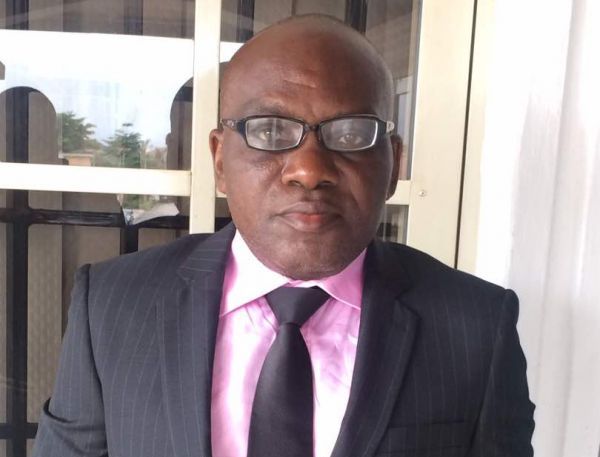GROpinion
Needless ethnic tension


By Muyiwa Akintunde
Given the tension that enveloped last Saturday’s election in some parts of Lagos, I am supposed to hate the Igbo. Right?
I’m sure my father, who died almost 45 years ago, would turn in his grave the day I nursed that evil thought. I never saw him hate anyone, his heart was consumed by love to all irrespective of where they came from.
He demonstrated this by deliberately sending his first surviving child – my now late older brother – to school in Warri. The young man would have travelled all the way to Sokoto had the admission to the Federal Government College in that Fulani city pulled through.
At the time my brother left Lagos for Federal Government College, Warri in January 1970, the civil war had just ended.
But my father had no qualms sending his son near the just ended theatre a 30-month war.
My brother returned home on his first holiday to tell us how the students lost count of corpses in FCC Warri’s vast compound. But that did not deter my dad from sending him back until he completed his five-year programme.
I would have travelled outside Lagos for secondary education too, but my mother cried to all who could pile pressure on her husband to dissuade him. She could not have her two children faraway from Lagos at the same time.
When it was time to get married, my brother chose a damsel from Urhoboland who he met while on audit assignment in Port Harcourt. The first time I led our family members from Lagos to Owhrode on the outskirt of Warri for my brother’s traditional marriage, there were complaints right from Ijebu-Ode that we were going too far. Each time I was asked if we were almost at our destination, I would respond with a mumbled “Yes!” Even as we couldn’t achieve our mission as my brother’s father-in-law insisted that he would not go ahead with the ceremony on account of a minor hitch, my brother still got us to do the visit again a year after.
My people, not being good travellers, had drummed it into my ears all the way to Warri and back that I must choose a wife from our ethnic region. My father didn’t groom me to limit my options on anything, even marriage.
Perhaps I would have been married to a charming Igbo young woman who I met in Ilorin and who remained my best female friend even to the envy of the woman I later tied the knots with. Anyone who knew me in Ilorin knew my girlfriend from Abia State. I also got to know her parents in their village. I had been sent on assignment to the newly created Abia State in 1991 and took time to deliver her message to her parents. We couldn’t deliver on marriage, but she remained my very good friend until one of the saddest days in my life – January 6, 2003. She died. Years later, the pains remain.
I’m supposed to hate the Igbo and perhaps other ethnic groups. My first job as a reporter (at The Guardian) was influenced and delivered by non-Yoruba at a time the newspapers had a Yoruba MD and deputy. Ayogu Eze, who would later become a Senator and now a governorship candidate in Enugu State, Emeka Izeze, Tommy Odemwingie and Amma Ogan were the arrowheads of those who believed I had done well enough as a freelance reporter and fought the long-drawn battle to have me employed at the Flagship.
When I decided to switch from journalism to public relations, two Nigerians outside my ethic area made that happen – Nn’emeka Maduegbuna and Mike Obiajulu Meze. And they provided me the push and encouragement to learn as much as I could.
Because she is Igbo, I am supposed to hate Chineze Amanfo, who gave me courage to dare and some briefs while she worked with a telecoms company. She was only my colleague at one of the PR agencies I had worked.
I’m supposed to hate Emma Okere, my best friend in my Ilorin years who himself got married to a Yoruba woman from the Kwara State capital. It was in Emma’s community in Ngor Okpala that I had the best of Ugba during my three-day visit to him in 1991.
I’m supposed to hate Emeka Ozumba who had stayed in my house in Lagos a few times when in transit. His wife too had been to our place, and recently when I had official trip to Enugu, Mrs Ozumba checked on me at the hotel I stayed, and I had to return the gesture by checking on the Ozumbas before returning to Lagos.
I’m supposed to hate James Eze, who, like Emeka, works with the Anambra State Governor and travelled from Awka to check on me the night I arrived Enugu during the said trip. He came back the next morning to spend quality time with me and deliver a gift I never expected.
Because he is Igbo, I should have no dealing with Okwudili (Okwy) Onyia, who visited my wife and I few years ago to announce his wedding to us and asked us to be the godparents.
I’m supposed to hate Isaac Umunna and Maureen Chigbo, who gave my son the opportunity to practice journalism just because of me.
I may not like his way, but MC Oluomo impressed me by inspiring a peace dialogue between the Igbo and the Yoruba communities in Oshodi on Thursday. Real name Musiliu Ayinde Akinsanya, MC Oluomu is a leader of the road transport workers in Oshodi and his members had been notorious for provoking violence.
We can’t make progress as a nation if we continue to nurse grudges a lot of which we inherited. We need each other and it is important we embrace the spirit of accommodation.
•Akintunde is a public relations consultant in Lagos.











